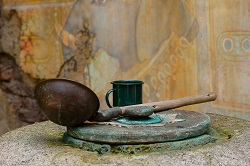Building trust for better water management
Water is a scarce resource in most countries around the Mediterranean and this is especially true for those on its Southern and Eastern shores. Water scarcity can lead to unfair access to water, lack of sanitation and associated health problems and even cause conflicts between communities. FP4BATIW, a Spanish-led project which finished in September 2016, aims to make sure that water is managed and treated in the best way by building partnerships between academics and water treatment and technology businesses based on both sides of the Mediterranean. ‘The big question is how to ensure the best possible water treatment policies are put into practice in Mediterranean Partner Countries by closing the gap between innovators and the water treatment industry,’ says Professor Manuel Valiente, project coordinator and director of the separation techniques in chemistry research group at Spain’s Autonomous University of Barcelona. Matching supply and demand FP4BATIW, involving 13 research centres and institutions from Egypt, Tunisia, Palestine, Jordan and Italy, has been striving to do this in various ways. The online Market Technology Platform has helped to match the demand and supply of expertise and technology. It allows researchers to publicise their ideas and companies to find solutions for their technology needs. Another, Water Kic, is serving as an online forum for the exchange of ideas and expertise. Researchers and service providers have been encouraged to build useful working relationships face-to-face as every FP4BATIW workshop has included a brokerage session. At the last conference on water treatment strategies from a circular economy perspective, held in Barcelona in July 2016, 120 such meetings were held. Innovative ideas, new techniques The FP4BATIW prize has helped encourage researchers and entrepreneurs from Egypt, Jordan, Palestine and Tunisia to come up with innovative ideas for managing, treating and saving water. The authors of ten promising proposals received coaching and advice from project partners for six months. The best three ideas were selected and their proponents were asked to present their ideas to an industry audience, including potential investors, at the final conference. These included new techniques from Jordan allowing planting in rocky areas or dry, eroded or degraded farmland areas and a surveillance and control system for water pipes from Tunisia which could significantly reduce leaks. Training has been a key component of the project. This took the form of ongoing technical assistance to companies in Jordan and Tunisia to help them overcome water treatment problems in their production lines. One recent example was the work with a garment-making company near Sousse in Tunisia, who explored ways of recovering and reusing dye from waste water. Three cohorts of researchers and entrepreneurs from EU and Mediterranean countries updated their skills by working in partner institutions abroad via a series of travel bursaries. Finally, the experience of working together for three years has not only given rise to dissertations, theses and publications in peer-reviewed journals. It has also helped to build trust between universities, municipalities and the private sector, thereby laying the foundations for new public-private partnerships in the water treatment sector. The final aim, according to Professor Valiente is ‘a more sustainable management of water as a consequence of a better reuse of wastewater resources from a social, health and environmental point of view.’
Keywords
FP4BATIW, water treatment, water management, water saving, waste water



